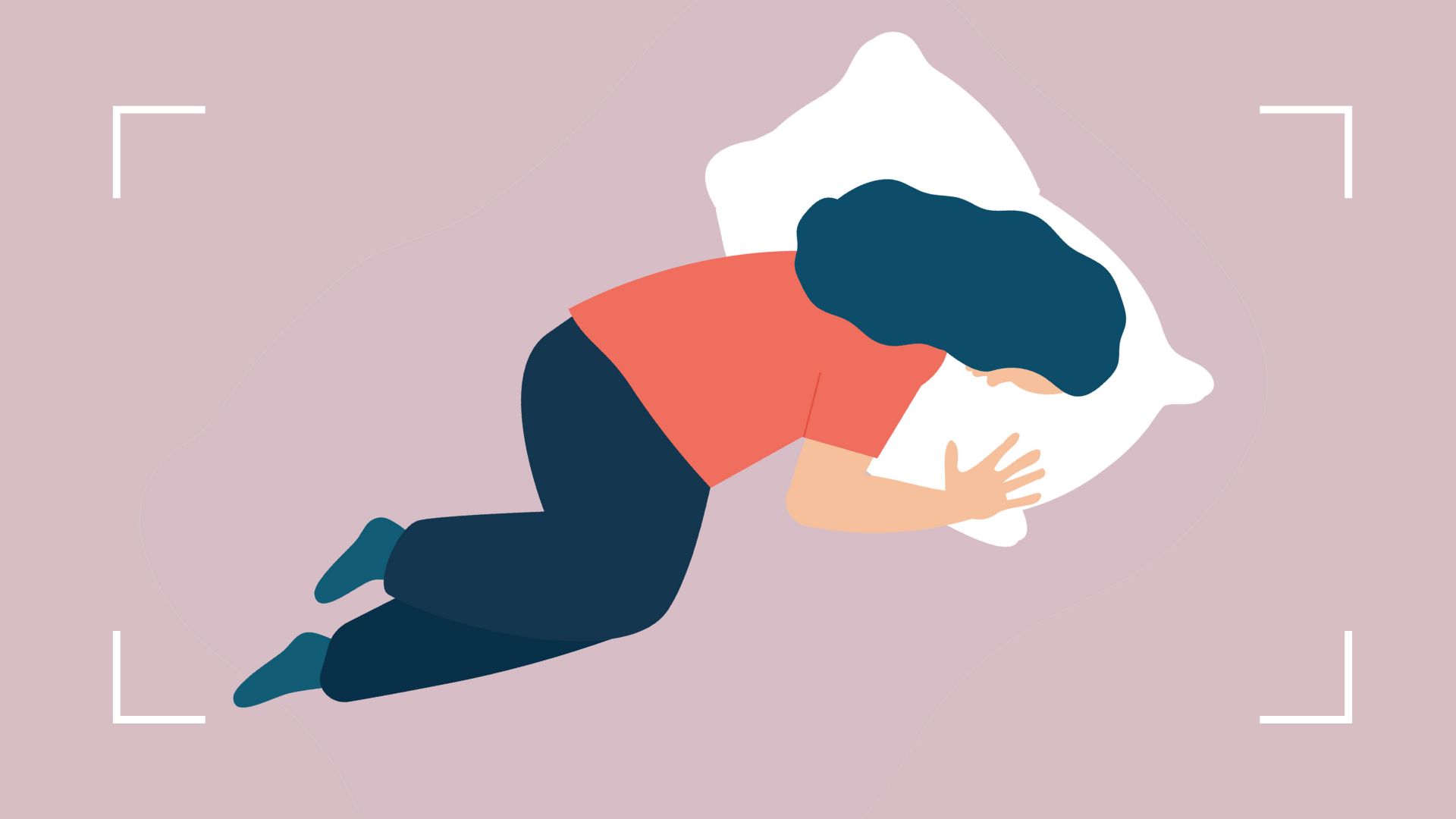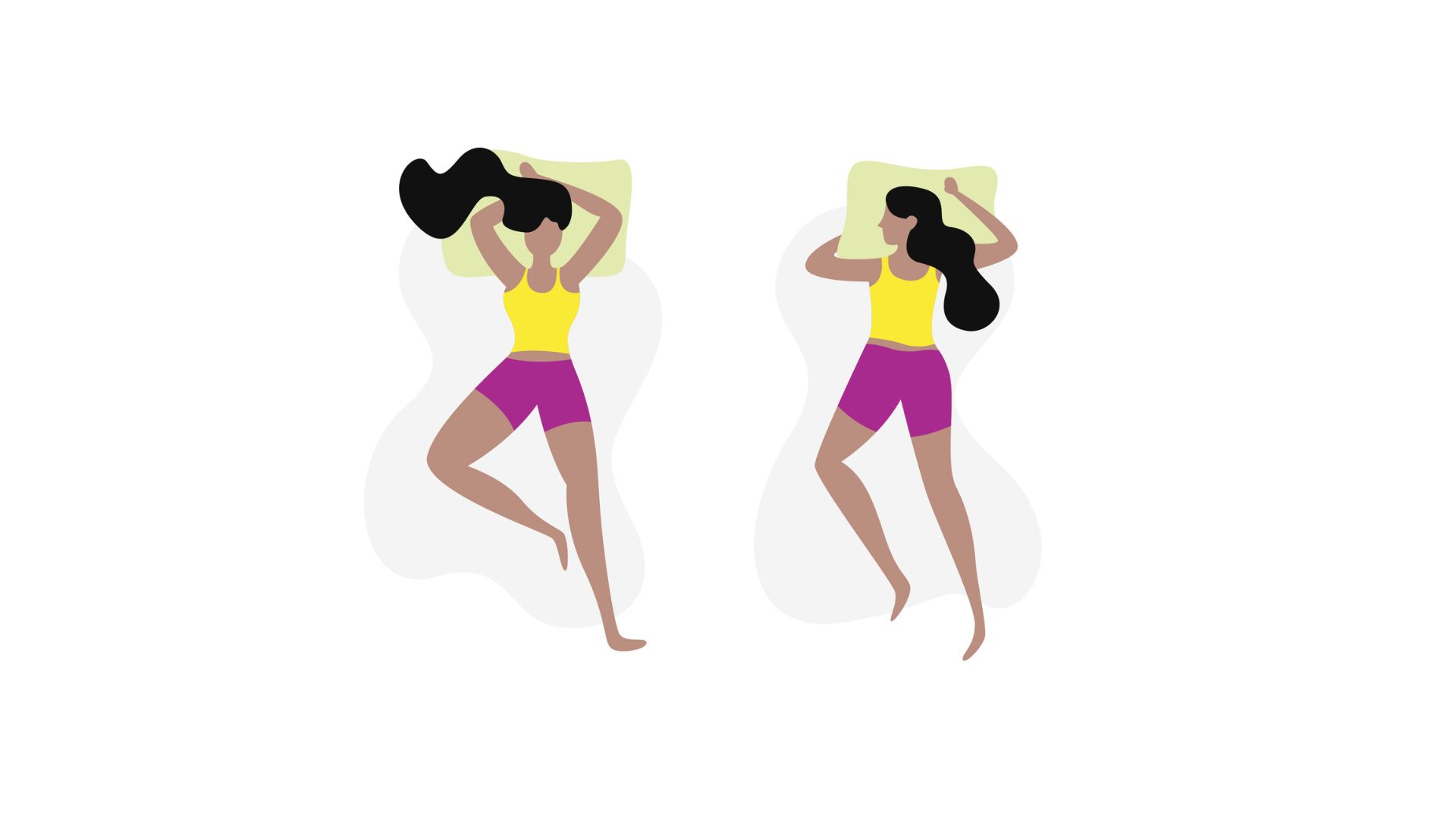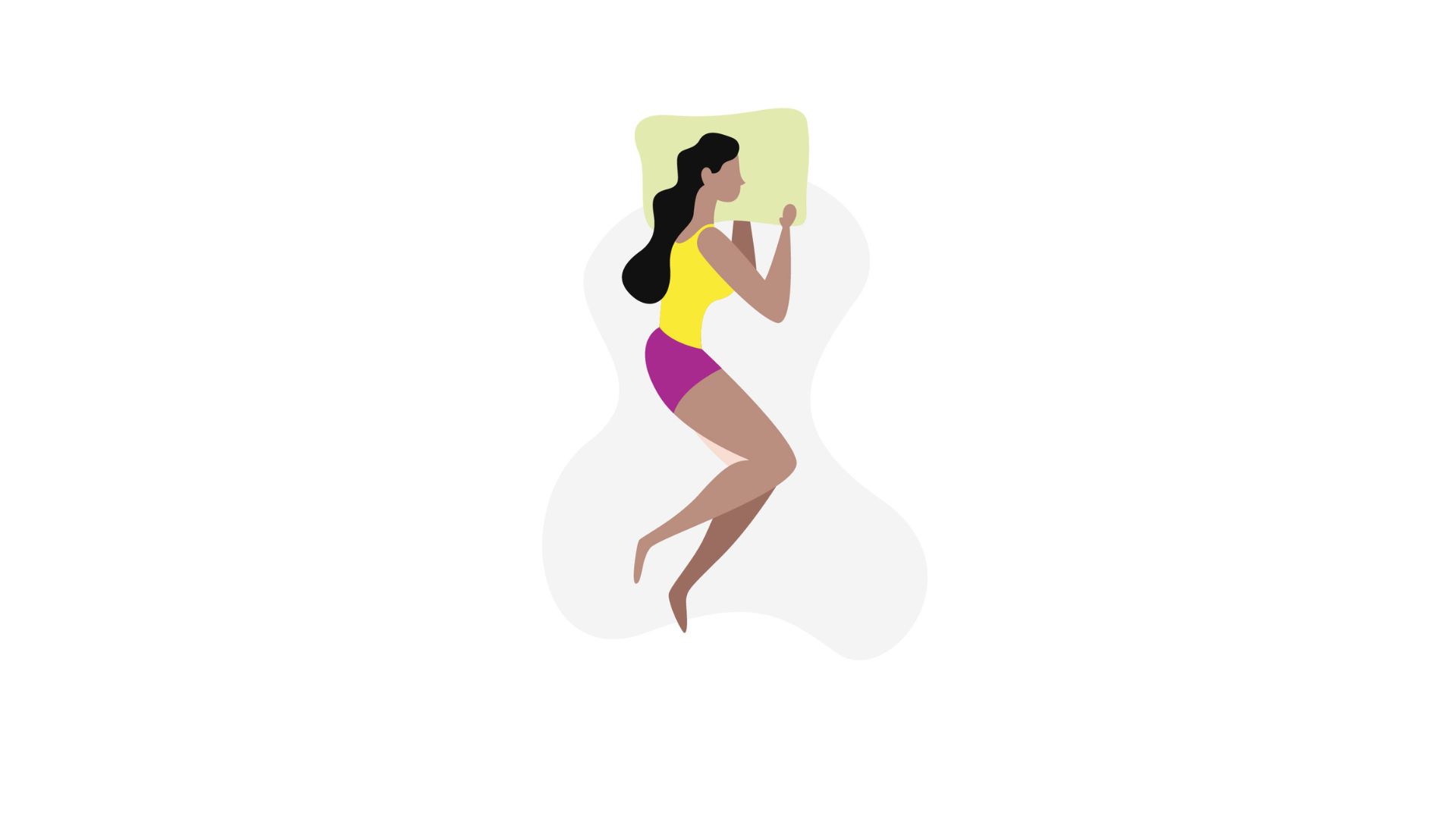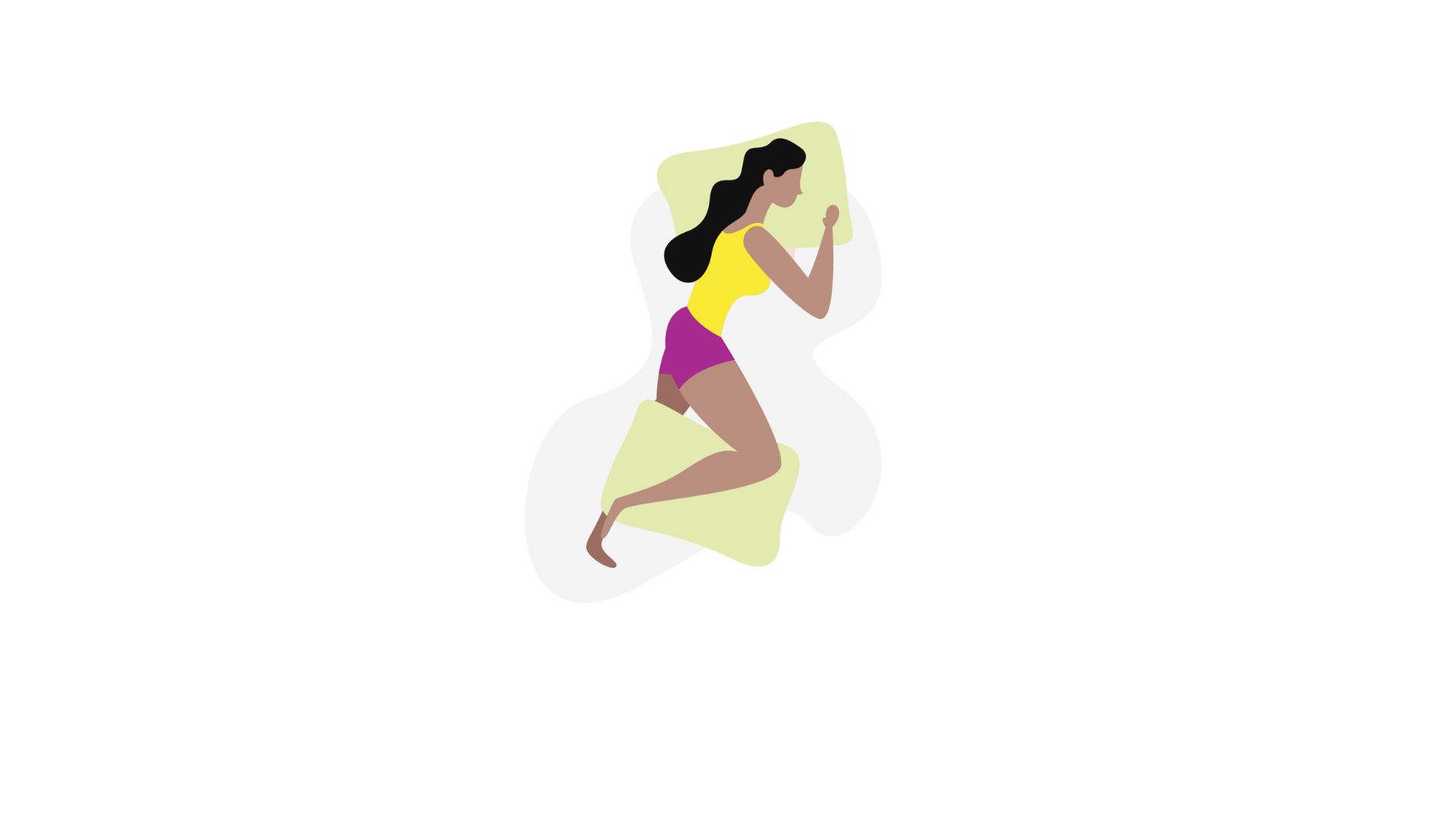How to sleep with lower back pain: 5 positions to try and tips from the experts
Knowing how to sleep with lower back pain can be hard. Here, osteopaths and other specialists reveal the best positions based on your pain and other tips for good sleep


Struggling to know how to sleep with lower back pain? Even though an estimated eight in 10 of us experience the issue, it's sometimes difficult to know how to handle the aches, twinges, and niggles that prevent us from having a good night's sleep. Luckily, the experts say it's all in the position and how you wind down to sleep at night.
The lower back, also called the lumbar spine, is a section of five bones supported by a complicated interlocking of muscles and nerves. While it's entirely possible to damage part of this collection with an injury, even a small one, most people experience lower back pain at some point in their lives thanks to good old wear and tear with age.
Alongside the general discomfort, insomnia and other sleep-related issues tend to be one of the nastier side effects of lower back pain in women. While it'll always be best to see a specialist if you are experiencing any persistent pain or issues falling asleep, we've spoken to a collection of back specialists who've revealed their go-to positions, how many pillows you should sleep with, and tips for easing lower back pain at night.
How to sleep with lower back pain
1. If bending forward causes pain

Those who are flexion intolerant, which simply means those who find bending forward painful, should avoid foetal-like positions in bed, says Andy Marlow (aka The Back Coach), a specialist personal trainer and McGill Method-certified instructor. "A flexed spine will likely trigger their pain."
Instead, he suggests opting for a front-sleeping position or a back-sleeping position with support that prevents the spine from sinking into flexion.
The back-sleeping position is also known as the supine semi-Fowler position, explains Miss Vivian A Elwell, a consultant neurosurgeon and spinal surgeon at London Bridge Hospital, part of HCA Healthcare UK. "The individual lays on their back with their head elevated between 30 and 45 degrees. Legs can either be straight or bent at the knees, and a pillow can be placed under the knees or calves for additional support."
2. If bending backwards causes pain

On the other hand, if bending backwards cause pain, the foetal position could be a winner.
Sign up to our free daily email for the latest royal and entertainment news, interesting opinion, expert advice on styling and beauty trends, and no-nonsense guides to the health and wellness questions you want answered.
"[Someone who finds bending backwards uncomfortable would] most likely find sleeping on their front painful because their spine would sink into extension, especially if they sleep on a soft mattress," says Marlow. "However, they may be able to reduce their pain lying on their front by placing a pillow under their belly to prevent their lumbar spine from extending."
For the same reasons, those looking for the best sex positions for lower back pain tend to opt for moves like spooning or the speed bump.
3. If bending to the side causes pain
The pillow technique will also be a game-changer for anyone who experiences back pain when they lie on their side in bed.
"I currently have a client who had been experiencing chronic back pain for 5 years until her assessment revealed that she had lateral spinal instability that provoked her pain when she flexed her spine to the left," says Marlow. "This was problematic because her preferred sleeping position is on her side. She continues to sleep on her side but now supports her spine with a pillow underneath to prevent her spine from flexing to the side. She can now sleep pain-free and her back hasn't felt better since before her back problems started."
4. If you experience painful 'catches' when you move in bed

If you find getting into and out of bed totally fine but moving during the night causes you issues like painful 'catches' as you turn, you'll need to focus on your core strength. "This problem can often be remedied by contracting the abdominal muscles in order to lock the ribcage into the pelvis, so they move together as a unit when you turn over in bed," says Marlow.
However, if this is your issue, it's best to reach out for professional help sooner rather than later. "If doing this takes away your pain, there's a good chance you have an unstable articulation, which could possibly be the result of a herniated disk or weakened spinal ligaments that require additional stability provided by muscular stiffness when you move," he explains.
5. If every position causes pain

If none of these are easing your back pain, try sleeping on your side, the experts suggest. "I often recommend my patients try and sleep on their side with a pillow between their legs. This helps keep the hips, pelvis and lower back in a fairly neutral position," says Lyndsay Hirst, a musculoskeletal physiotherapist specialising in back pain.
In this position, Miss Elwell adds, bring your knees up toward your chest. "Flexing your knees and having a pillow between your legs can help align your spine, pelvis, and hips," she says. "This position takes some pressure off the spine."
Why is lower back pain worse at night?
You might think that any back pain would be better at night, considering you're spending (hopefully at least) eight hours off your feet. However, the experts say that's often not the case. Inflammation is one of the body's ways to heal itself from the day and our levels of inflammation tend to rise at night, given that one of the functions of sleep is to help the body repair itself, explains Hirst. "This is most often why pain tends to be worse in the evening for some people," she says.
Marlow agrees - swelling is the cause of most people's problems and is often why they struggle to get to sleep or can't get back to sleep after waking up. "The discs between the vertebrae in your spine attract water, which causes them to swell when you lie down. This is how the discs receive the nutrients they need to stay healthy, but if they're injured, the increased pressure can be painful," he says. "In this case, it's wiser to get straight out of bed as soon as you've woken up."
If you find that you experience back pain in the evening before you sleep, it may be worth looking at your evening activities. "If you spend your evening sitting in a flexed position (in a chair, for instance), this sedentary position is going to put certain structures of the spine under pressure," Hirst says.
Tips for sleeping with lower back pain
- Speak to your doctor: "The first thing I suggest is to speak to your doctor about any pain relief," suggests Hirst. "There are certain medications that can be taken at night to specifically help with night pain."
- Keep your bedroom cool: "A lot of recent research [including that by Imperial College London] shows that 18 degrees Celsius (65 degrees Fahrenheit) is a healthy temperature for the bedroom," says osteopath Nadia Alibhai, pointing to the importance of good sleep hygiene. "Someone who has back pain might find that a hot room will flare it up further, so this is a good solution."
- Have a warm bath: If you're looking to learn how to sleep with lower back pain, remember that heat is a famous relaxer for the body. So, Hirst reminds us, having a bedtime routine that includes a warm bath could be helpful. "The heat can help ease muscle tension," she says. A hot water bottle in bed could also be beneficial for the same reason.
- Cool down for the night with a stretch: Downloading one of the best stretching apps could be the key to better sleep, says the osteopath. "Try gentle stretches before you get into bed to improve mobility," suggests Alibhai.
- Incorporate some core workouts into your routine: While this won't be possible for everyone who experienced back pain as it's very much dependent on the severity of the issue, doing core work can help ease lower back pain. "Try doing things like wall planks and even basic knee-to-spine- techniques where you hold it for five to 10 seconds [will be beneficial and they] can be done while waiting for the kettle to boil."
- Limit your stress levels: If you find yourself waking up in the middle of the night, consider whether your stress levels could be becoming an issue. "Stress is linked to insomnia," Alibhai explains. "If a person isn't sleeping well, their body isn't getting a chance to heal, rest, and recoup."

Grace Walsh is woman&home's Health Channel Editor, working across the areas of fitness, nutrition, sleep, mental health, relationships, and sex. She is also a qualified fitness instructor. In 2025, she will be taking on her third marathon in Brighton, completing her first ultra marathon, and qualifying as a certified personal trainer and nutrition coach.
A digital journalist with over seven years experience as a writer and editor for UK publications, Grace has covered (almost) everything in the world of health and wellbeing with bylines in Cosmopolitan, Red, The i Paper, GoodtoKnow, and more.